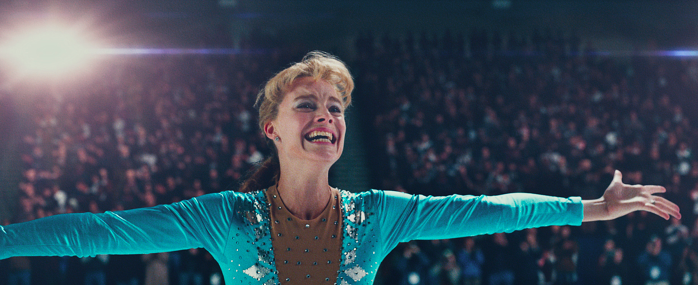
Photo Credit: Imdb.com
By Vincent Abbatecola
Whenever a story breaks about an individual committing a questionable act, we can’t help but be glued to our news outlets to speculate what has happened and draw our own conclusions. While there may be some instances where the truth is more clear-cut, there are others where you’re not sure what and whom to believe, making it difficult to dig through the mud and reach the exact truth.
As figure skater Tonya Harding says in director Craig Gillespie’s biographical comedy-drama, “I, Tonya,” “There’s no such thing as truth. Everyone has their own truth.”This is a sentiment that’s examined in an unusual true story that has as much humor as it does heartbreak.
Ever since Tonya Harding (Margot Robbie) was a young girl, her dream was to skate. Through the “support” of her physically and verbally abusive mother, LaVona Fay Golden (Allison Janney), Tonya becomes one of the world’s best skaters in the early 90s, and eventually makes it to the Winter Olympics. However, when her ex-husband, Jeff Gillooly (Sebastian Stan), comes back into her life, Tonya’s career suffers a downfall no one could have expected.
Margot Robbie provides a transformative performance that’s deeply sympathetic, as she’s torn between what people expect her to be as a figure skater and what she wants to be: herself. She displays the frustration at not being judged the way her talent should be judged, all because of her lower-class upbringing, and we’re able to feel how unfair this is for her. As the film cuts between her past and present self, we see the distinctions between Tonya as a hopeful figure-skating champion, and Tonya as an infamous former talent. This allows us to see the person who she’ll become, even if we haven’t yet seen her full path to greatness unfold, and Robbie displays a complete mastery of her character.
While Allison Janney has provided many witty performances in film, what she does here is something deeper. She uses a kind of verbal cruelty that can make us laugh, but a kind that also makes us wince at its ability to sting. However, we understand she is the way she is because she wants to push Tonya to reach her highest potential and have her exceed the low expectations that others see in her because of her questionable upbringing.
Sebastian Stan’s performance is one that lets us see two distinct sides of his character, one being Tonya’s abusive husband, and the other being a solemn, apologetic individual in the interviews. When we see the latter, it’s almost difficult to believe that it’s the same person who used to hurt Tonya, and the transitions between these two timelines lets us experience a jarring change in his personality between then and now. This is even more jarring when we see him go between both sides of his personality in the non-interview portions of the film, going from uncaring in one scene, to loving in the next, showing how volatile his character is during his time with Tonya.
The screenplay by Steven Rogers takes the “based on a true story” approach and brings it to an exciting new level by having the narrative told through multiple and contradictory perspectives. We mostly hear from Tonya and Jeff, but we’re also given viewpoints from Tonya’s mother, her skating coach (Julianne Nicholson), her bodyguard (Paul Walter Hauser), and a tabloid-news producer (Bobby Cannavale). By having several people tell their sides of the story, this leads the audience to have to make up their minds to see who they’re going to believe.
What Rogers does is use the interviews as a framing device and have the characters face the audience, putting us in the position of the interviewer. This is a way to have the characters break the fourth wall and address us, as they do a few times in the non-interview scenes. It makes it seem like the characters are fighting to grab hold of the audience’s attention in order to get their side of the story out in the open.
With the help of Gillespie’s direction, the fourth-wall breaking has a startling effect in one scene where Tonya mentions how she had been abused her entire life, be it by her mother or her husband. But, she then says that when the public wanted to bring her career down with their speculations of what happened in the Nancy Kerrigan incident, they became her abusers. By having her face the audience when she says this, it puts them in an uncomfortable position, adding a deeper level to the viewing experience because it relates back to when Tonya says, “America, they want someone to love, but they want someone to hate,” meaning that people like to raise their idols up, only to see them plummet from grace. All of this makes “I, Tonya” a darkly funny, yet condemning portrait about how our unjustified views of others can damage their lives.

You must be logged in to post a comment Login